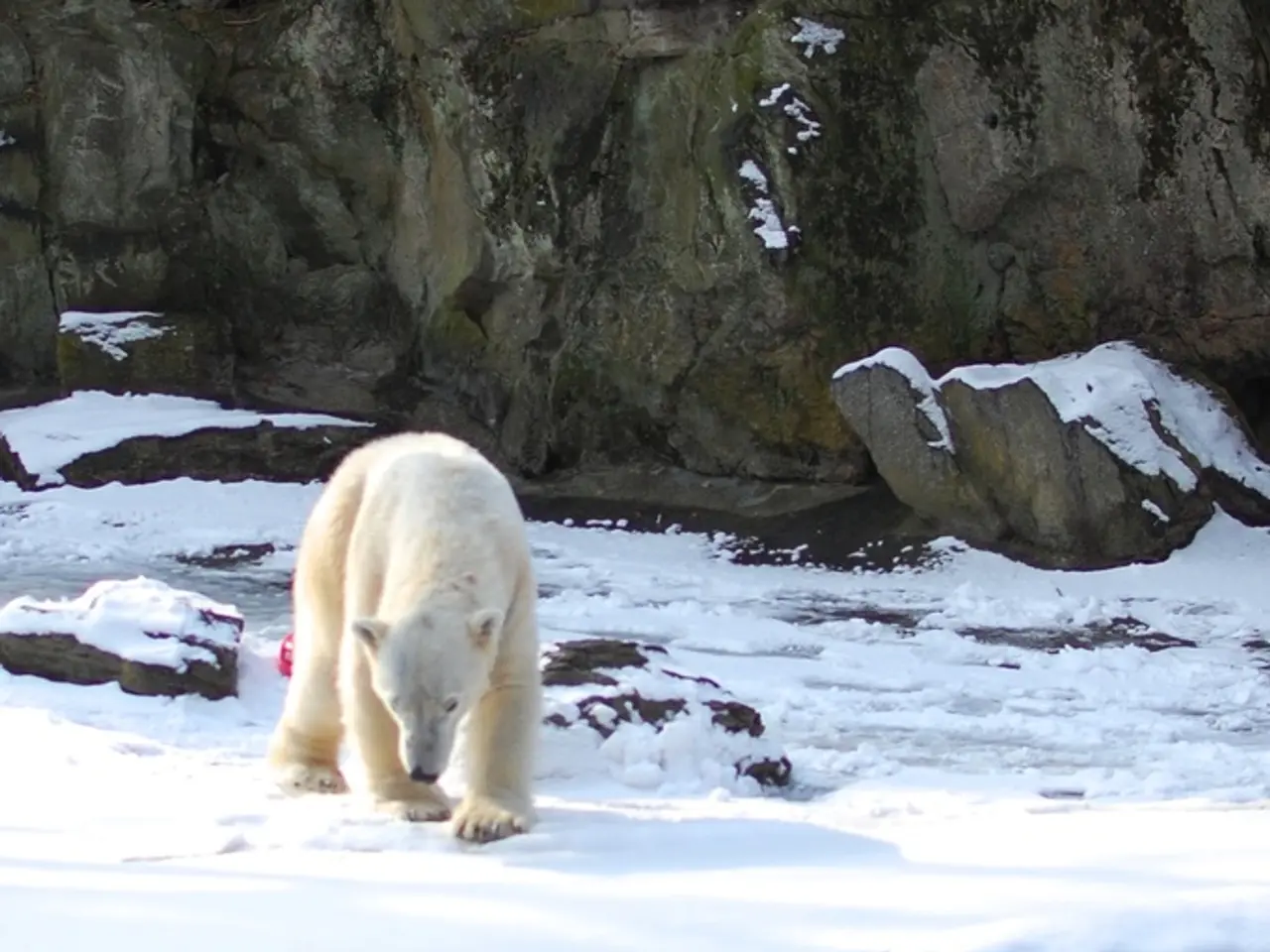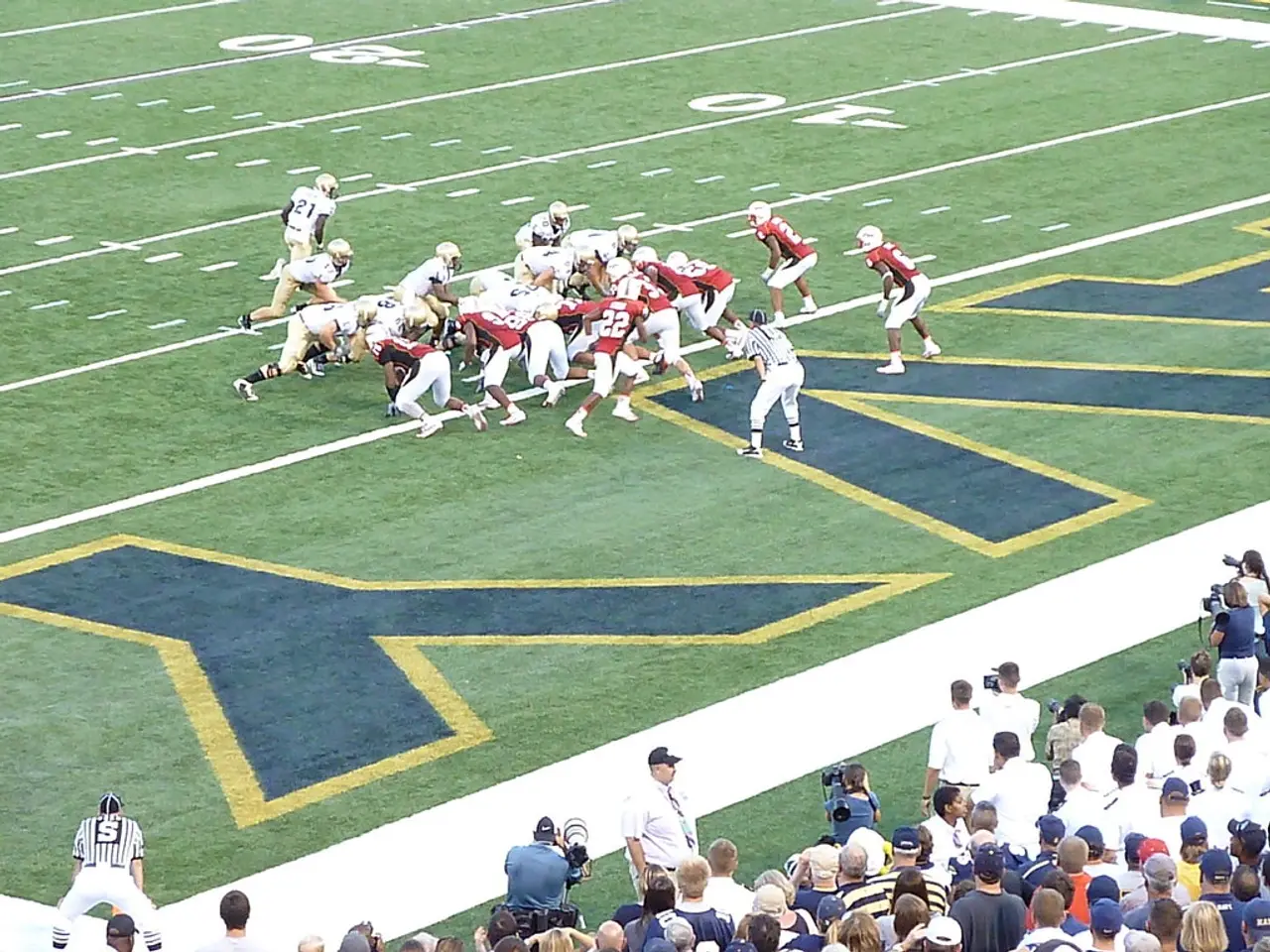Encouraging Public Awareness: KY Fish and Wildlife Teach BearWise Practices as Young Bears Wander Away from their Den sites
As the warm weather of early summer arrives in Kentucky, residents may find themselves sharing the outdoors with the state's native black bears. John Hast, Bear Program coordinator, emphasises that sightings of these animals in unusual areas are quite common during this season.
To ensure a safe coexistence between humans and bears, the Kentucky Department of Fish and Wildlife Resources offers some practical advice. The department urges the public not to approach or feed a bear, as this can result in a negative encounter. Instead, if you encounter a bear, maintain a safe distance and let it move on when it feels safe to do so. If you feel a bear is posing an immediate danger, call local law enforcement immediately.
To minimise encounters and reduce bears' reliance on human food sources, it is essential to follow several guidelines. Firstly, never feed bears intentionally or unintentionally. This practice can lead to habituation and increase the risk of encounters. Secondly, ensure that grills and outdoor cooking areas are thoroughly cleaned after use to prevent attracting bears. Thirdly, keep pet food indoors, especially during periods when bears are more active. Fourthly, use bear-resistant containers for garbage or store it indoors until collection day to prevent attracting bears.
Residents in bear-spotted areas should secure garbage in a garage or building and keep pet food indoors. Leaving unsecured food for bears is a violation of Kentucky law. In addition, using bird feeders is not advisable in bear range or areas where bears have been recently observed.
It is important to note that black bears have a natural fear of people and dogs, and adverse encounters are extremely rare. However, confused and scared bears may hide during the day and exit the area at night. Young male black bears disperse from their primary range in eastern Kentucky during early summer, and juvenile bears may wander into populated areas, including city centers, because they don't yet know better. These bears can travel up to 20 miles or more in a day if undisturbed.
For more information about black bears and their behaviour, residents can visit the Kentucky Fish and Wildlife Black Bears webpage (fw.ky.gov). Additional resources can be found on BearWise.org. It is also crucial to understand that hunting bears in Kentucky is regulated and limited to defined seasons in the established bear zones in eastern Kentucky. Kentucky's bear hunting regulations aim to maintain a sustainable and healthy black bear population.
Biologists and game wardens with the Kentucky Department of Fish and Wildlife Resources urge caution about bear sightings across the state. By following these guidelines, residents can help maintain a safe coexistence with black bears and support conservation efforts in Kentucky.
Engaging in environmental-science courses, residents of Kentucky can acquire knowledge about black bears and learn ways to coexist safely with them. By adhering to guidelines like avoiding feeding bears or storing garbage securely, one can help minimize encounters and contribute to the sustainable health of the black bear population, making the state a safer place for both bears and humans, especially during sports events like outdoor games in the summer.






